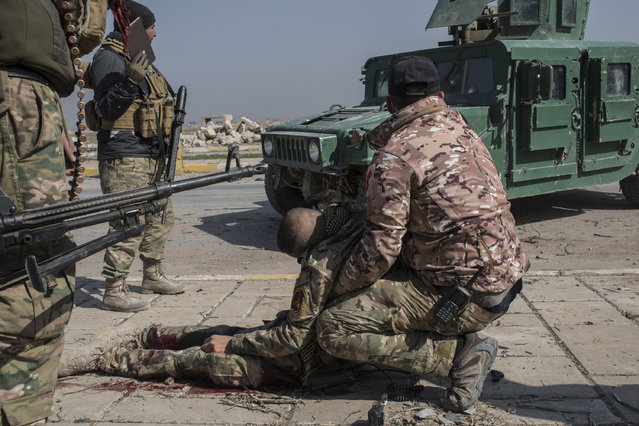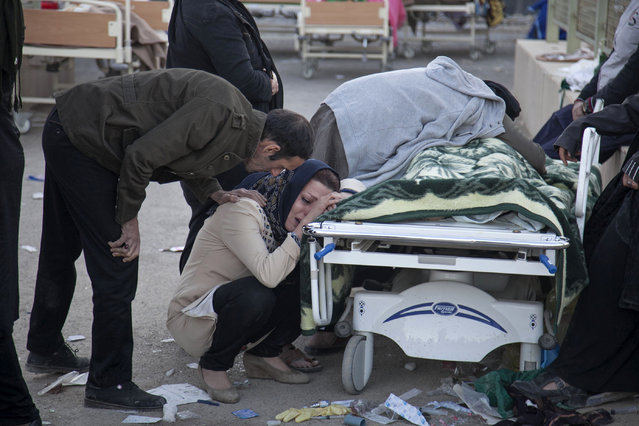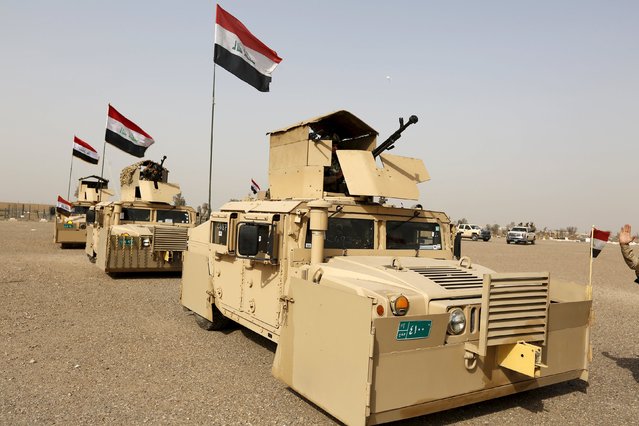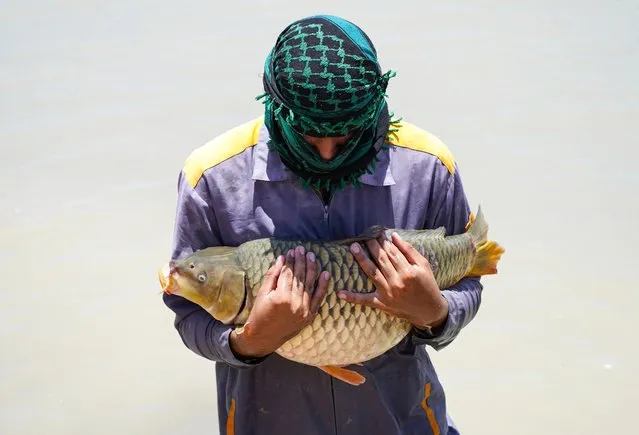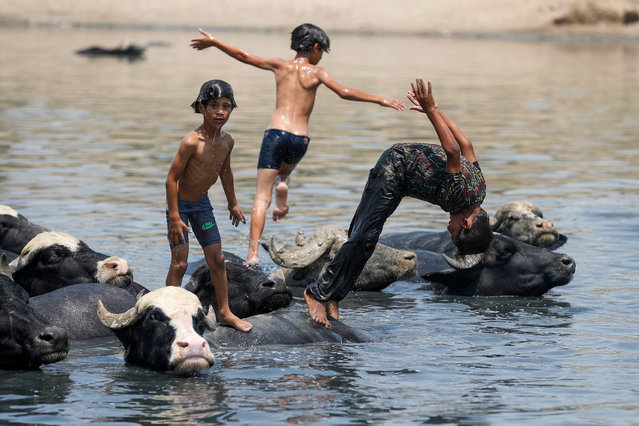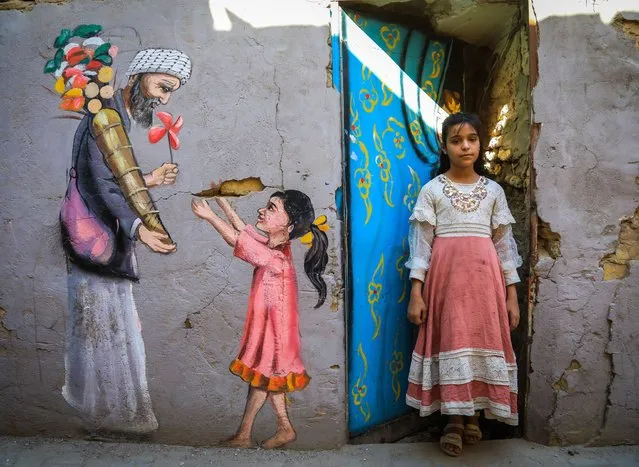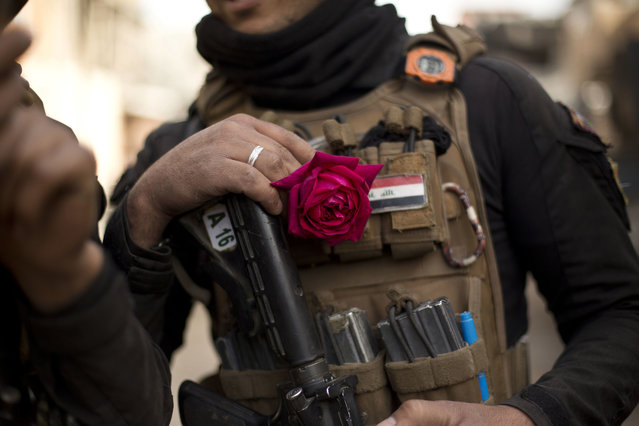
An Iraqi special forces soldier wears a rose in his body armor as troops move from the Yarmouk neighborhood to take another district from Islamic State militant control in Mosul, Iraq, Wednesday, April 12, 2017. (Photo by Maya Alleruzzo/AP Photo)
26 Apr 2017 08:29:00,post received
0 comments

